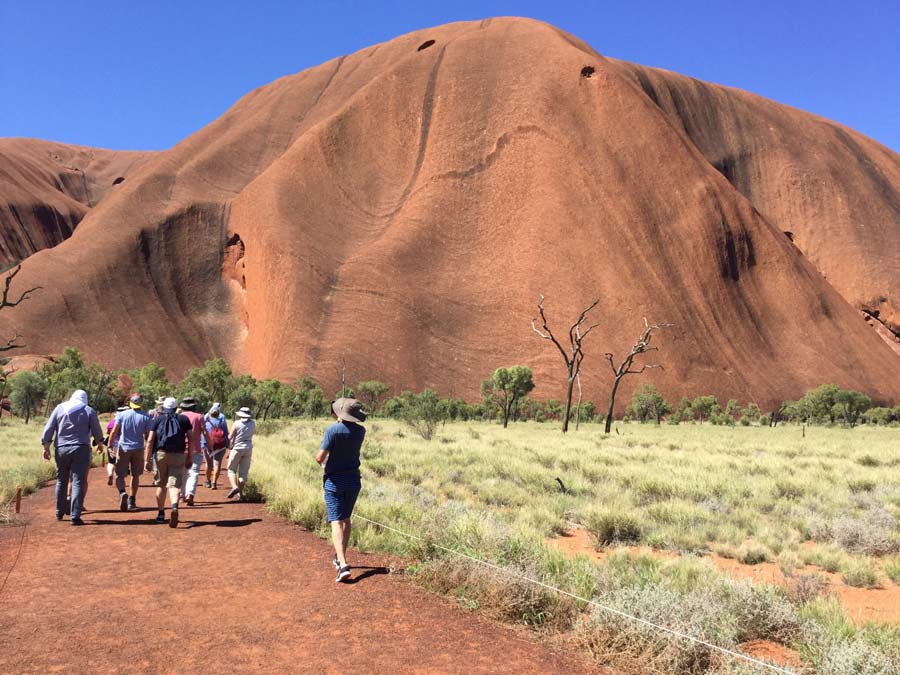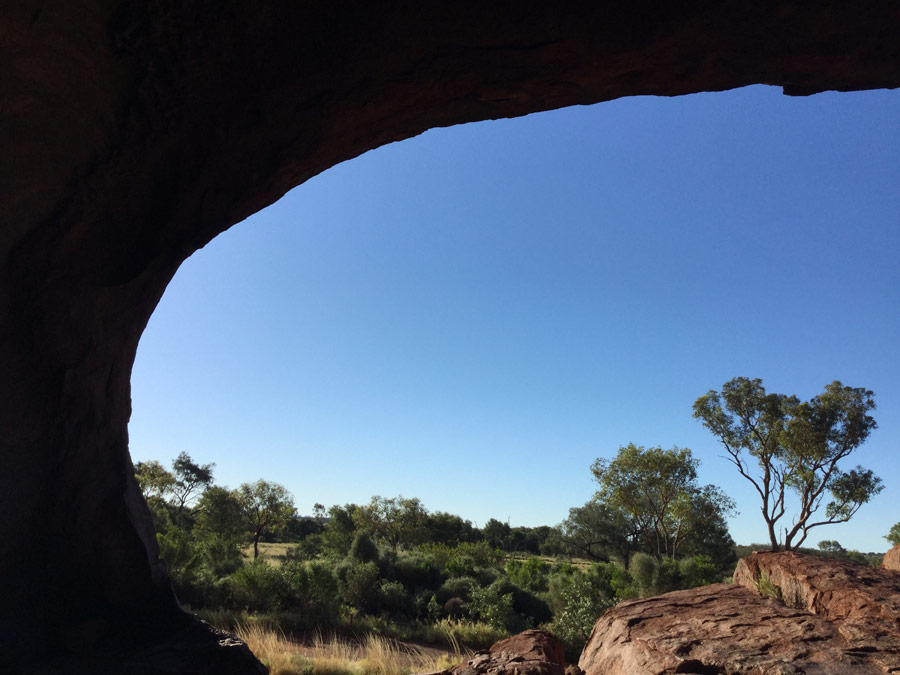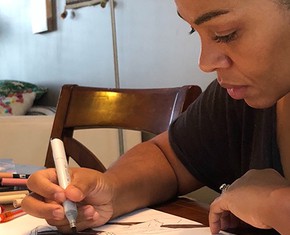The views expressed in our content reflect individual perspectives and do not represent the authoritative views of the Baha'i Faith.
Have you ever been to Australia? My husband and I just came back to Canada from a trip to the Land Down Under.
It’s good to travel, especially to far off, unfamiliar places. It keeps us on our toes, and reminds us that we’re part of the human family:
… for everyone it is now easy to travel to any land, to associate and exchange views with its peoples, and to become familiar … with the conditions, the religious beliefs and the thoughts of all men. – Abdu’l-Baha, Selections from the Writings of Abdu’l-Baha, pp. 31-32.

Uluru (Ayers Rock) in the Northern Territory of Australia with our tour group.
On our trip we met many different people, from various regions of Australia as well as tourists like us. The highlight of the trip was a so-called safari. To tell you the truth, it was a glorified camping trip and not even glorified at that. We travelled to Uluru, or as most people know it, Ayers Rock, a three-day adventure into Australia’s outback. It was tough sleeping in tents in 30-40 degree temps and not having easy access to comfortable showers and bathrooms. Hiking mountains in the heat and long drives on dirt roads made the trip even harder for us. We weren’t happy campers; after all we are city folk, so the whole thing reminded us of the movie City Slickers.
But after having left the hardship of desert camps and returning to the comfortable amenities of city life, we realized that the trip to Uluru was the absolute highlight of our travels.
This was especially true because we were in close contact with the rest of the campers and had many interesting conversations with them. They were mostly Europeans: Swiss, Dutch, Germans and Danes. Most were concerned about the state of Europe after Brexit and the state of the world. They were worried about the refugees in their countries and the political situation in the world in general.
It was good to hear the concerns of people we don’t normally hang out with—we can all benefit from listening to total strangers. The ones we met had a somewhat pessimistic view of the future of humanity. They were surprised that we were optimistic; and they said so.

View out of a cave within Uluru.
I talked with one group about the long arc of human history—how we all started out in the cave (we had just visited the ancient caves used by the Anangu, the Aboriginal people living on the land around Uluru, and the oldest known human culture); how from there we gathered into tribes; then we formed city-states and finally created nations and countries. The last stage is not too far in the past; Italy became a country in 1861! A Dutchman agreed that Holland (the Netherlands) was also a relatively new country. The reality is, I offered, that we are moving toward a global village, a term first coined by the renowned Canadian intellectual Marshall McLuhan back in the early 1960’s.
The numerous means of global communication and transportation have, as McLuhan theorized and predicted, indeed connected us in ways we could not have fathomed—and they continue to advance at breakneck speeds!
The Dutchman asked me, “then, how do you explain Brexit?” I answered, “a blip in history.” The fact is that Italy did not become a country peaceably—hardly any nation did. Most went through insurrections and wars to get there. We are all familiar with how the United States of America became a single nation after the American Civil War. Every unity on the planet has come about after many disagreements, turmoil and even war. The longer view of the course of our global history testifies to this fact.

One of the camps we stayed in.
General Systems Theory, formulated by biologist Ludwig von Bertalanffy, proposes that all of nature including human relations is interconnected and must be seen as a whole. The historical trend in the structures of human societies has been one of advancement to the higher state, no matter the blips in each case. All societies, having started in caves, have evolved gradually towards nationhood. Furthermore, within any system, whether biological, chemical or social, major advancement into a higher state seems to come after a critical point, a boiling point if you may. For instance, water—a liquid—progresses to that of the higher, more energetic state of gas only after boiling.
It seems we humans are now experiencing just such a global boiling point. With all that heat and pressure, it’s good to listen to others and hear the plight of every man and woman, and even every animal and plant. It may seem like a lot of noise and confusion, making it hard to imagine that the next stage in humanity’s advancement, a global civilization, will come about either easily or smoothly.
… the members of the human family, whether peoples or governments, cities or villages, have become increasingly interdependent. For none is self-sufficiency any longer possible, inasmuch as political ties unite all peoples and nations, and the bonds of trade and industry, of agriculture and education, are being strengthened every day. Hence the unity of all mankind can in this day be achieved. – Abdu’l-Baha, Ibid.
The arc of human history is moving toward the advancement of our civilization. We may try to resist it and swim against its current, but to no avail.
The Founder of the Baha’i Faith articulated humanity’s collective purpose and our inevitable evolution to a higher state of being a century and a half ago:
All men have been created to carry forward an ever-advancing civilization. The Almighty beareth Me witness: To act like the beasts of the field is unworthy of man. Those virtues that befit his dignity are forbearance, mercy, compassion and loving-kindness towards all the peoples and kindreds of the earth. – Baha’u’llah, Gleanings from the Writings of Baha’u’llah, p. 215.
















Comments
Sign in or create an account
Continue with Googleor